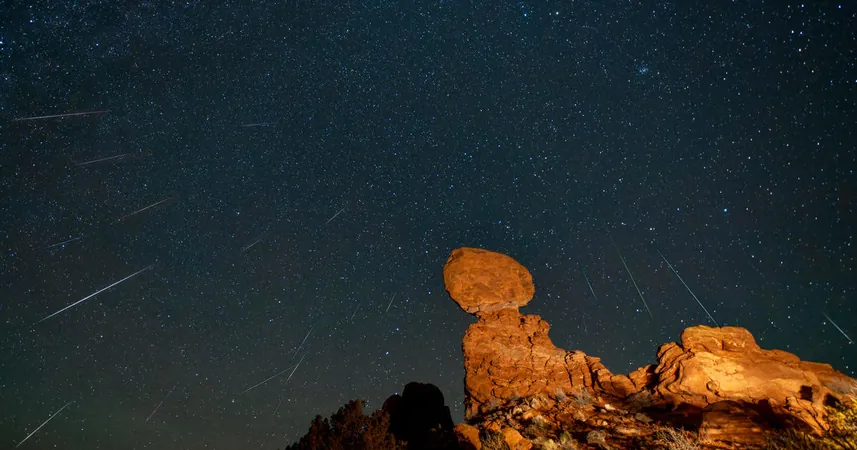
Don't Miss Out! Why You Should Catch the Early Show of the Geminid Meteor Shower!
2024-12-06
Author: John Tan
Are you ready for a celestial spectacle? This year's Geminid meteor shower is just around the corner, peaking from Friday, December 13, into the early hours of Saturday, December 14, but there’s a compelling reason to start your observations early!
NASA experts suggest that you might want to begin your meteor watch in advance of the peak. Why? Because the full moon during the peak will create bright illumination, making it difficult to see the meteors. However, you can still catch some dazzling early displays leading up to the main event!
Where to Watch the Geminids
Expect to see meteors streaking across the sky from all directions, and the best part? They can be spotted worldwide! To optimize your experience, find a dark location far from the city lights. It’s advisable to lie back comfortably with your feet pointing south to maximize your field of vision. Also, give your eyes about 30 minutes to adjust to the darkness for a better viewing experience.
The ideal time to watch for these shooting stars typically starts around 9 or 10 p.m. local time and extends into the pre-dawn hours of the following morning.
Expert Tips for Viewing
The renowned astronomy site EarthSky emphasizes the importance of blocking out moonlight when you're watching. "With moonlit skies in 2024, you might only catch the brightest meteors," they warn, reminding enthusiasts that many of the Geminids can still be quite brilliant.
What Are the Geminids?
Unlike most meteor showers that originate from comets, the Geminids are unique because they come from an asteroid named 3200 Phaethon. They first appeared in the mid-1800s, and over time, the frequency of visible meteors has increased dramatically, now exceeding 120 meteors per hour under optimal conditions.
NASA scientists describe the Geminid meteors as particularly bright and fast, often displaying a stunning yellow hue as they travel at an astounding speed of 22 miles per second. When these space rocks enter Earth's atmosphere, they heat up and produce that mesmerizing streak of light we associate with meteors.
So, don’t wait for the peak—be proactive and make your plans to catch this awe-inspiring event early! Gather your friends, bundle up against the cold, and make a night of it as you marvel at one of nature’s most incredible displays. Who knows? You might even witness a meteor shower that takes your breath away!



 Brasil (PT)
Brasil (PT)
 Canada (EN)
Canada (EN)
 Chile (ES)
Chile (ES)
 España (ES)
España (ES)
 France (FR)
France (FR)
 Hong Kong (EN)
Hong Kong (EN)
 Italia (IT)
Italia (IT)
 日本 (JA)
日本 (JA)
 Magyarország (HU)
Magyarország (HU)
 Norge (NO)
Norge (NO)
 Polska (PL)
Polska (PL)
 Schweiz (DE)
Schweiz (DE)
 Singapore (EN)
Singapore (EN)
 Sverige (SV)
Sverige (SV)
 Suomi (FI)
Suomi (FI)
 Türkiye (TR)
Türkiye (TR)